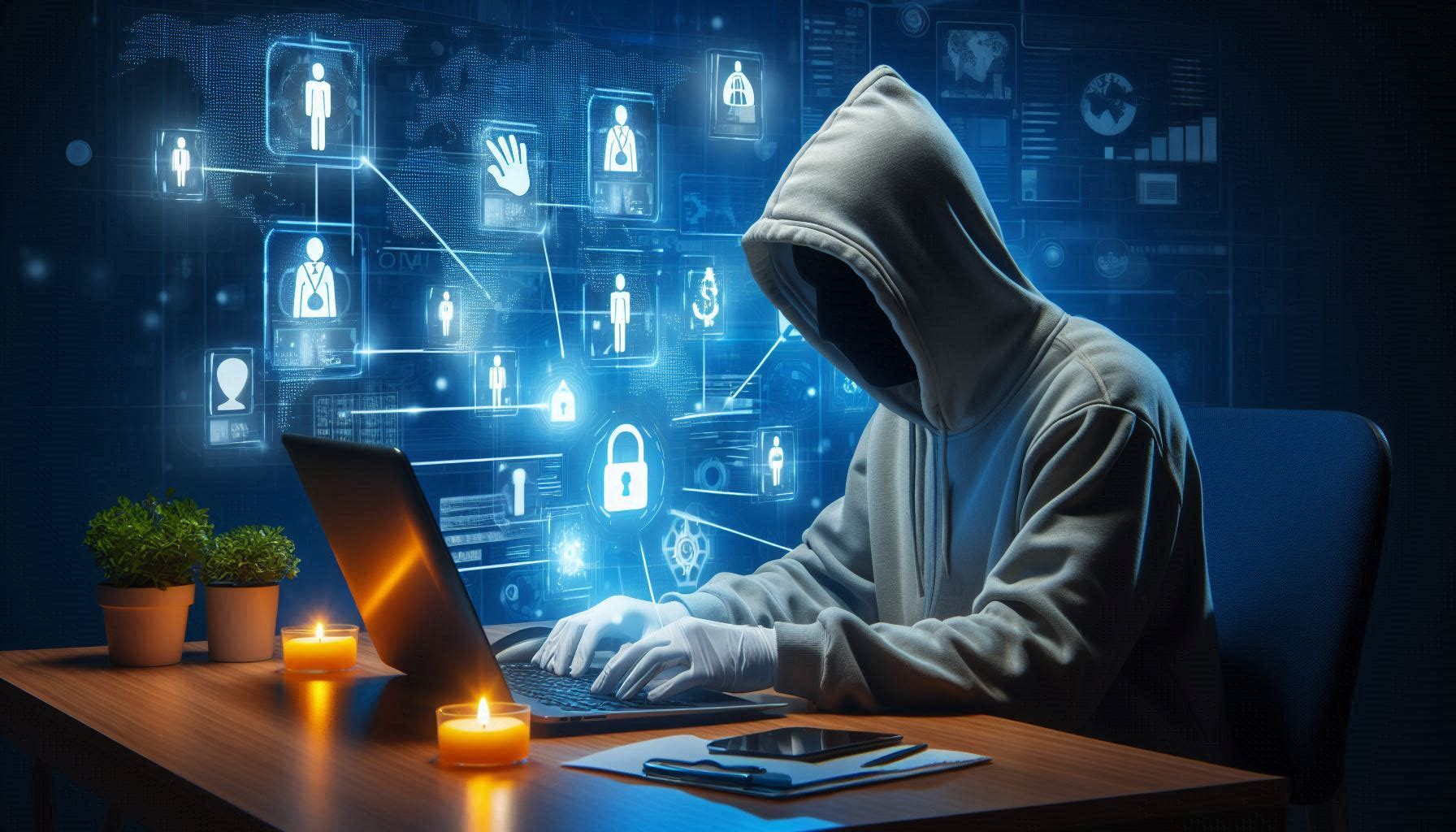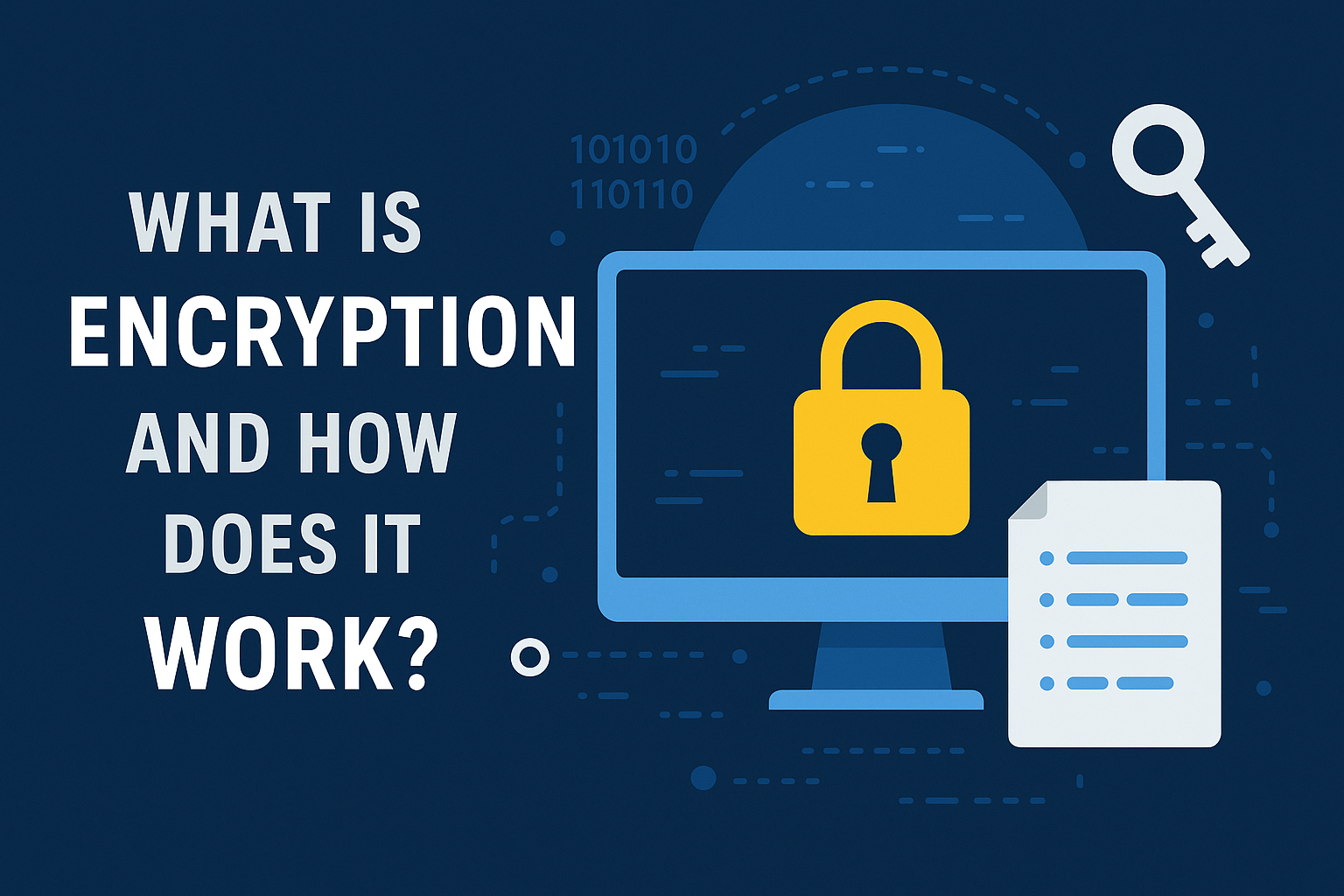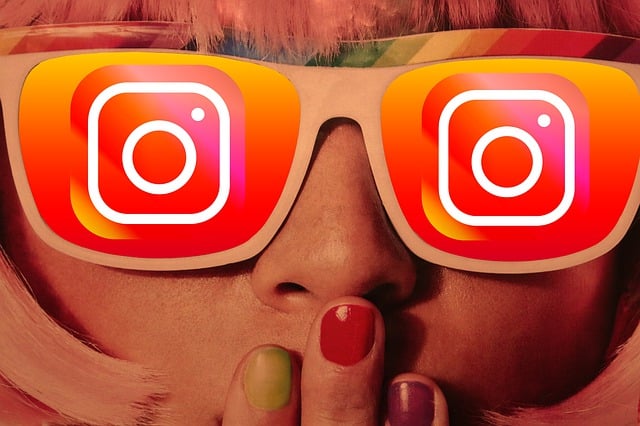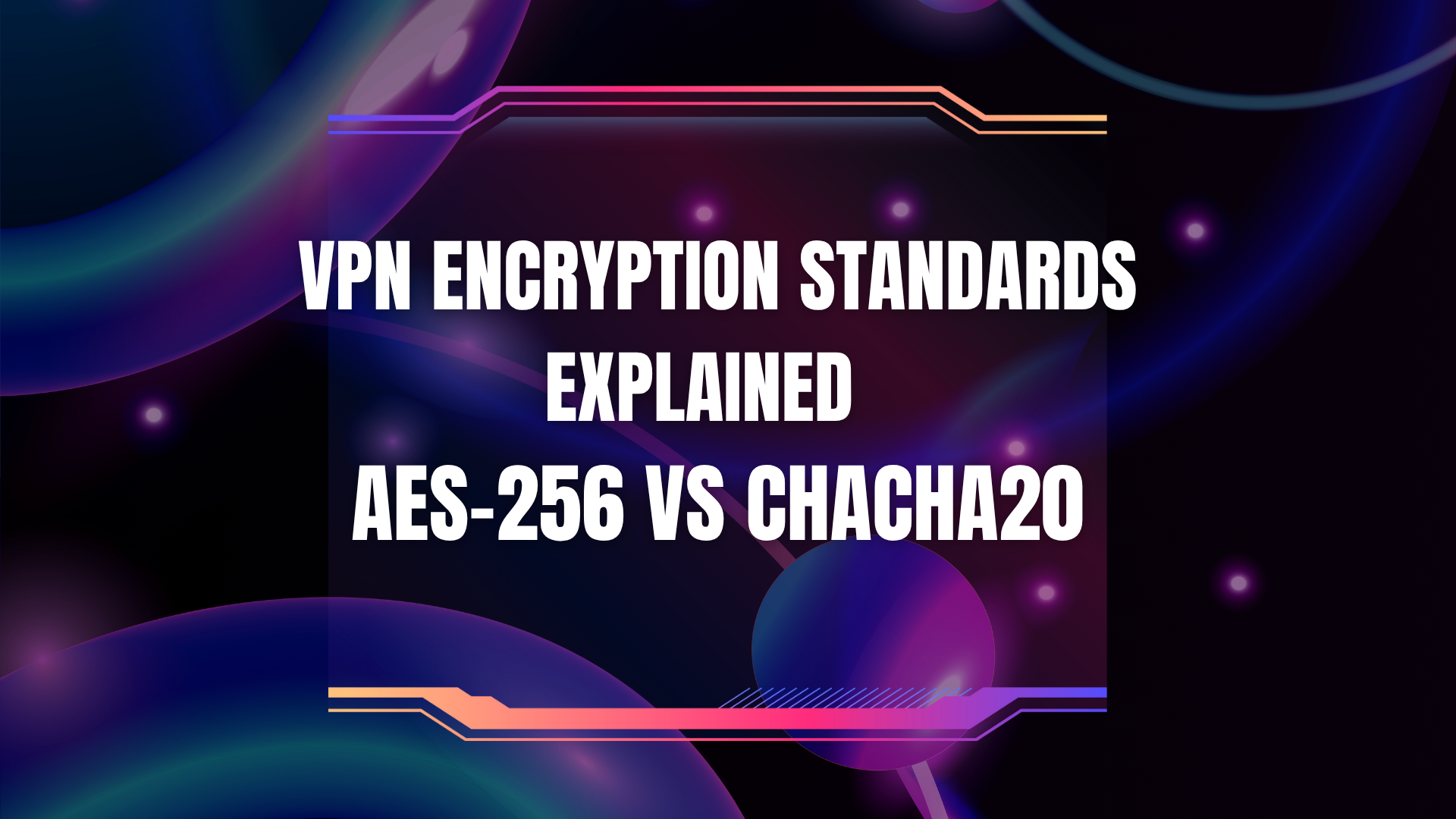Is Using A VPN Enough to Secure Messaging Apps Like Signal and WhatsApp?
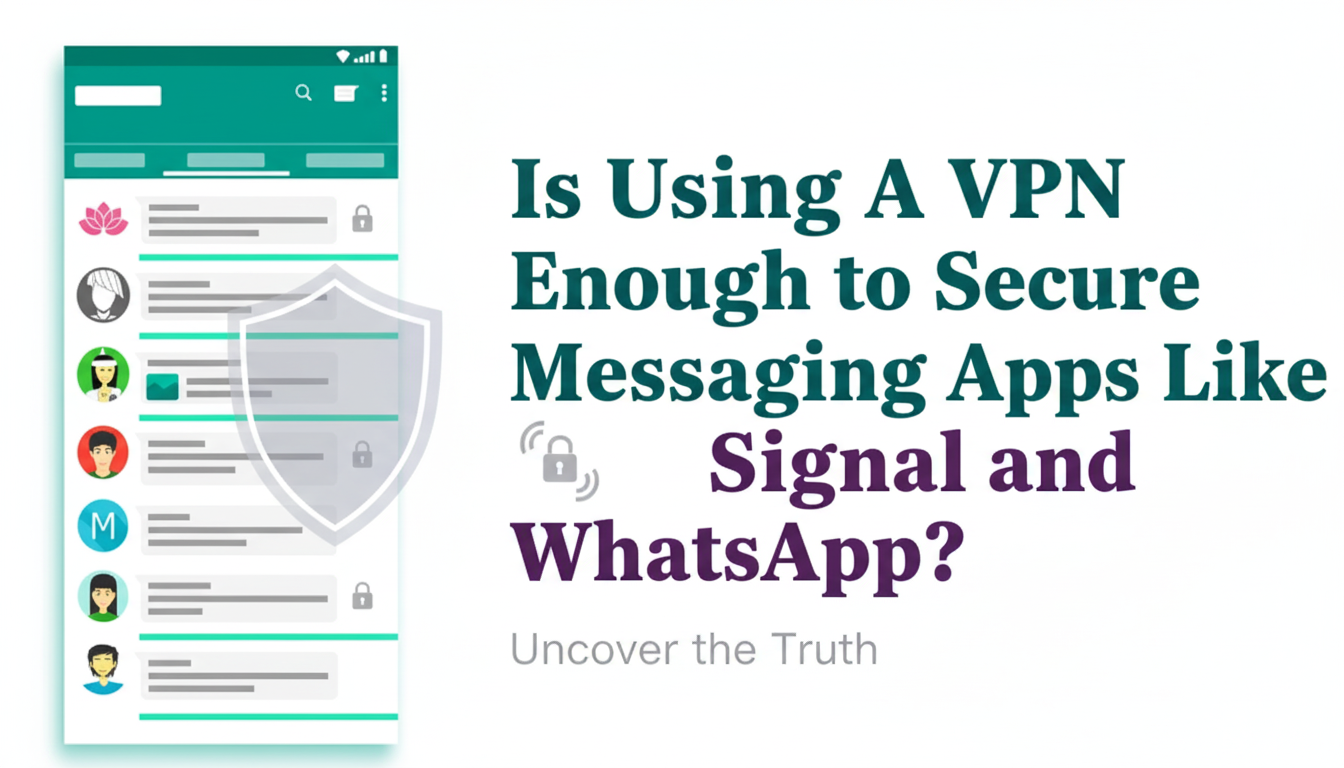
Cybercrime is projected to cost businesses a staggering $10.5 trillion by 2025, according to Cybersecurity Ventures. With approximately 4,000 cyber attacks happening daily – that’s one every three seconds – protecting our digital communications has never been more critical.
As messaging apps like Signal and WhatsApp become our primary communication channels, many users believe that simply using a VPN provides complete security. But is that assumption correct?
The reality is more nuanced than most people realize. While VPNs offer valuable privacy benefits, they work alongside – not as a replacement for – the built-in security features of encrypted messaging apps.
Understanding the Security Layers in Modern Messaging
What End-to-End Encryption Actually Does
Both Signal and WhatsApp use the Signal Protocol, which provides end-to-end encryption (E2EE) for all communications. This means that messages are encrypted on your device and can only be decrypted by the recipient’s device. Even the app providers themselves cannot read your messages, according to WhatsApp’s official documentation.
The encryption happens before your message even leaves your phone. By the time data travels through your internet connection, it’s already scrambled into unreadable code that only your recipient can unlock.
How VPNs Complement Messaging Security
A VPN creates an encrypted tunnel between your device and the VPN server, masking your IP address and location. This adds a protective layer around your internet traffic, preventing your internet service provider (ISP), network administrators, or potential hackers on public Wi-Fi from seeing which apps you’re using or when you’re using them.
Based on my research, I’ve seen that users often confuse these two types of encryption. E2EE protects message content, while VPNs protect your connection metadata and browsing activity.
The Critical Difference Between Content and Metadata
What Metadata Reveals About You
Here’s where things get interesting. While E2EE protects what you say, metadata reveals who you talk to, when, how often, and for how long. This information can be incredibly revealing, even without access to actual message content.
According to the Electronic Frontier Foundation, WhatsApp collects metadata such as phone numbers, IP addresses, and communication patterns. Signal, on the other hand, employs a “Sealed Sender” feature that hides metadata even from itself.
| Metadata Type | What It Reveals | WhatsApp Collection | Signal Collection |
|---|---|---|---|
| Phone Numbers | Contact relationships | Yes | Minimized |
| IP Addresses | Location data | Yes | Sealed Sender hides |
| Communication Timing | Activity patterns | Yes | Minimized |
| Message Frequency | Relationship strength | Yes | Minimized |
How VPNs Protect Your Metadata
This is where VPNs become valuable for messaging app users. By masking your real IP address, a VPN prevents apps and network observers from knowing your actual location. For WhatsApp users particularly, this adds a layer of privacy that the app itself doesn’t provide.
In 2025, with over 1.75 billion people using VPNs globally – roughly one-third of all internet users – this combination approach is becoming standard practice for privacy-conscious individuals.
Real-World Scenarios: When VPNs Matter for Messaging
Public Wi-Fi Vulnerabilities
Using messaging apps on public Wi-Fi networks creates specific risks. While your messages remain encrypted, an attacker on the same network could potentially see that you’re using Signal or WhatsApp and monitor your connection patterns.
The Federal Trade Commission warns that public Wi-Fi networks are prime targets for cybercriminals. A VPN encrypts all your internet traffic, preventing network observers from identifying which apps you’re using or collecting metadata about your communications.
Government Surveillance and ISP Monitoring
Without a VPN, your ISP can see every website you visit and every app you use – even if they can’t read your encrypted messages. This information can be logged, sold to data brokers, or handed over to authorities with a subpoena.
Based on my experience analyzing privacy tools, I’ve noticed that ISP-level surveillance is one of the most overlooked privacy risks. Your internet provider knows more about your digital habits than you might think.
Location Privacy for Journalists and Activists
For journalists, activists, or anyone in sensitive situations, location data can be dangerous. Even with E2EE protecting message content, revealing that you’re communicating from a specific location can compromise your safety.
According to World Economic Forum research, digital privacy tools have become essential for protecting vulnerable populations worldwide. A VPN disguises your location, adding crucial protection beyond what encrypted messaging provides.
The Limitations of VPN Protection
What VPNs Cannot Protect
It’s crucial to understand what VPNs don’t do. They cannot:
- Protect against device compromise or malware
- Prevent someone from reading messages if they have physical access to your unlocked phone
- Stop screenshots or forwarding of your messages
- Protect you if the VPN provider itself logs your data
- Secure messages stored in unencrypted cloud backups
The FBI’s Internet Crime Complaint Center reports that most security breaches result from user error, not encryption failure. No VPN can protect against clicking phishing links or downloading malicious attachments.
VPN Provider Trust Issues
Your VPN provider can see all your internet traffic – including which messaging apps you use. This makes choosing a trustworthy, no-log VPN provider essential. Unfortunately, only 32% of Americans currently use VPNs, and many who do haven’t thoroughly vetted their provider’s privacy practices.
I’ve researched numerous VPN providers over the years, and the quality varies dramatically. Free VPN services often monetize your data, completely defeating the privacy purpose. For reliable VPN recommendations based on verified no-log policies, check out our comprehensive VPN comparison guide on VPNSuggest.
Signal vs WhatsApp: Security Differences That Matter
Privacy Philosophy Comparison
While both apps use the Signal Protocol for E2EE, their approaches to user privacy differ significantly. Signal is built by a non-profit foundation focused solely on privacy, while WhatsApp is owned by Meta, a company whose business model relies on data collection.
According to 2025 research from Malwarebytes, Signal’s “Sealed Sender” feature provides stronger metadata protection than WhatsApp’s approach.
| Feature | Signal | |
|---|---|---|
| Message Encryption | Signal Protocol (E2EE) | Signal Protocol (E2EE) |
| Metadata Collection | Minimal (Sealed Sender) | Extensive |
| Data Sharing with Parent Company | None (non-profit) | Shared with Meta |
| Phone Number Requirement | Yes (but exploring alternatives) | Yes |
| Open Source | Fully open source | Partially open source |
| Default Backup Encryption | Optional but not cloud-based | Optional cloud backup |
Backup Security Concerns
One often-overlooked vulnerability affects both apps: backups. According to the Electronic Frontier Foundation, many users store message backups in cloud services like Google Drive or iCloud without realizing these backups aren’t always end-to-end encrypted.
WhatsApp introduced encrypted backups in 2021, but they must be manually enabled. Signal takes a different approach, storing backups locally on your device rather than in the cloud. A VPN provides no protection for these backup vulnerabilities – that requires separate configuration.
For a deeper analysis of messaging app security features, visit our detailed comparison of encrypted messaging apps.
Building a Complete Privacy Stack
The Layered Security Approach
True digital privacy requires multiple overlapping protections. Think of security like layers of Swiss cheese – each layer has holes, but when stacked together, the holes don’t align, creating solid protection.
Based on my analysis of current privacy best practices, here’s what a comprehensive privacy stack looks like:
- Device security: Strong passwords, biometric locks, and device encryption
- App selection: Choosing apps with strong privacy commitments (Signal over WhatsApp)
- Network protection: Using reputable VPN services, especially on public networks
- Backup security: Enabling encrypted backups and avoiding cloud storage when possible
- Operational security: Being mindful of what information you share digitally
Practical Implementation Steps
Start by evaluating your actual threat model. A casual user concerned about ISP tracking has different needs than a journalist working with sensitive sources.
For most people, combining a quality VPN with Signal provides excellent privacy protection. The VPN masks your location and app usage from network observers, while Signal’s E2EE and minimal metadata collection protect your communications.
However, according to Security.org’s 2025 data, 68% of respondents either don’t use VPNs or remain unaware of them – a sharp increase from 54% in 2024. This awareness gap leaves millions vulnerable to preventable privacy breaches.
Special Considerations for Different User Groups
Business and Remote Workers
Remote workers face unique security challenges. Using company messaging apps over home or public Wi-Fi without VPN protection can expose corporate communications to interception.
The global average cost of a data breach reached $4.44 million in 2025, according to IBM’s annual report. Companies increasingly require VPN usage for remote employees to prevent costly security incidents.
For businesses evaluating secure communication solutions, I recommend reading our guide on VPN solutions for remote teams.
Travelers and International Users
When traveling internationally, both VPNs and encrypted messaging become essential. Some countries restrict or monitor certain messaging apps, while others impose internet censorship.
A VPN can help you maintain access to your preferred messaging apps while protecting your communications from local network surveillance. However, be aware that VPN usage itself is restricted in some countries.
High-Risk Users (Journalists, Activists, Whistleblowers)
For individuals facing targeted surveillance, standard precautions aren’t enough. High-risk users should:
- Use Signal exclusively (never WhatsApp)
- Enable disappearing messages
- Regularly verify safety numbers with contacts
- Use a VPN at all times
- Consider using Tor in addition to VPN for maximum anonymity
- Store nothing in cloud backups
According to Statista research, targeted attacks against high-profile individuals have increased 37% since 2023, making these precautions increasingly necessary.
Common Misconceptions About VPN and Messaging Security
“VPNs Make Me Completely Anonymous”
This is perhaps the most dangerous misconception. VPNs hide your IP address and encrypt your connection, but they don’t make you invisible. Your messaging app accounts are still tied to your phone number, your device has unique identifiers, and your behavioral patterns can be tracked.
True anonymity requires much more than a VPN – it requires careful operational security, including using different devices for sensitive communications, avoiding linkable identifiers, and understanding advanced privacy tools.
“End-to-End Encryption Means Total Privacy”
E2EE protects message content brilliantly, but it’s just one piece of the privacy puzzle. As I’ve researched messaging security extensively, I’ve found that users consistently overestimate what E2EE protects while underestimating metadata risks.
Your contact list, communication patterns, location data, and app usage habits all create a detailed profile – even with perfectly encrypted messages. This is why the VPN + encrypted messaging combination provides stronger protection than either alone.
“Free VPNs Are Good Enough”
This misconception directly undermines your privacy goals. Free VPN providers must monetize somehow – typically by logging and selling your data, injecting ads, or limiting functionality.
Research shows that many free VPN apps actually increase privacy risks rather than reducing them. For trustworthy recommendations, explore our analysis of verified no-log VPN services.
Emerging Threats and Future Considerations
AI-Powered Analysis Threats
The Verizon 2025 Data Breach Investigations Report highlights an emerging concern: AI-powered traffic analysis. Even with encrypted connections, machine learning can identify patterns, correlate metadata, and make surprisingly accurate inferences about encrypted communications.
This evolving threat landscape means that privacy protection must continuously adapt. What works today may be insufficient tomorrow.
Quantum Computing Concerns
Security experts warn that quantum computers could eventually break current encryption standards. Both VPN and messaging app encryption could theoretically be compromised by sufficiently powerful quantum systems.
However, this remains a future concern rather than current threat. Both the Signal Protocol and modern VPN encryption are being updated to be “quantum-resistant” – but this is another reason to stay informed about privacy developments.
Regulatory Changes and Backdoor Demands
Governments worldwide continue pushing for encryption backdoors, arguing they need access to encrypted communications for security purposes. The World Economic Forum tracks these policy debates, which could fundamentally change how messaging apps operate.
Using a combination of VPN and privacy-focused messaging apps provides defense-in-depth against these evolving regulatory risks.
Making the Right Choice for Your Needs
Assessing Your Privacy Requirements
Not everyone needs maximum privacy protection. A casual user chatting with friends has different requirements than someone handling confidential business information.
Ask yourself these questions:
- Who might want to monitor my communications?
- What information am I trying to protect?
- What are the consequences if my privacy is compromised?
- Am I traveling or using public networks frequently?
- Do I need to hide my location or just my message content?
Your answers determine whether you need a VPN in addition to encrypted messaging, and which messaging app best serves your needs.
Balancing Convenience and Security
Privacy tools inevitably create some friction. VPNs may slow your connection slightly, and Signal has fewer features than WhatsApp. These trade-offs are worth considering.
Based on my experience helping people implement privacy solutions, I’ve found that the best security setup is one you’ll actually use consistently. A perfect solution you abandon after a week provides zero protection.
Conclusion
Using a VPN with messaging apps like Signal and WhatsApp provides significantly stronger privacy protection than using these apps alone, but it’s not a complete solution by itself.
While end-to-end encryption protects your message content brilliantly, a VPN shields your location data, hides your app usage from network observers, and protects against metadata collection that E2EE doesn’t address.
The most effective approach combines choosing the right messaging app (Signal offers stronger privacy than WhatsApp), using a reputable VPN service, enabling encrypted backups, and maintaining good operational security practices.
With cybercrime costs reaching $10.5 trillion in 2025 and only 32% of Americans using VPNs, there’s a critical awareness gap that leaves millions vulnerable to preventable privacy breaches.
Frequently Asked Questions
Does Signal or WhatsApp need a VPN to be secure?
No, both apps provide strong end-to-end encryption without a VPN, but a VPN adds important metadata protection and location privacy that the apps alone don’t provide.
Can my internet provider see my Signal or WhatsApp messages?
No, your ISP cannot read your encrypted messages, but they can see that you’re using these apps and when you’re using them unless you use a VPN.
Is Signal more secure than WhatsApp with a VPN?
Yes, Signal provides better privacy than WhatsApp even with a VPN because it collects less metadata and doesn’t share data with parent companies like Meta.
Will a VPN slow down my messaging apps?
A quality VPN typically causes minimal speed reduction (5-15%) that won’t noticeably affect messaging app performance, though it may slightly delay large file transfers.
Do I need a VPN if I only use messaging apps on cellular data?
A VPN still provides value on cellular data by hiding your location and app usage from your mobile carrier, though the risks are generally lower than on public Wi-Fi.
Loading newsletter form...

